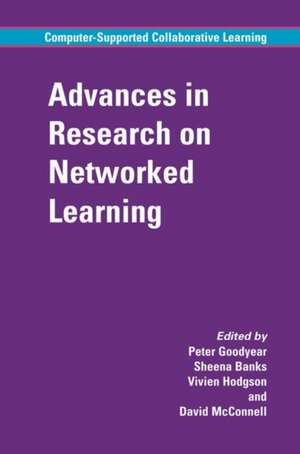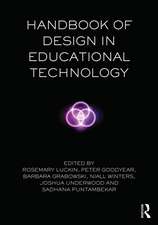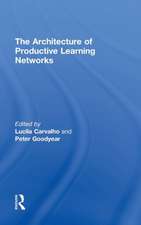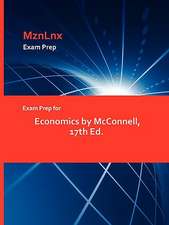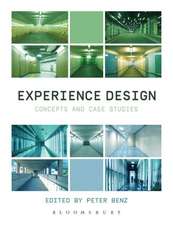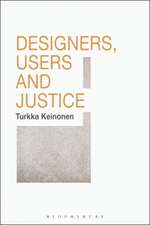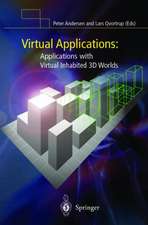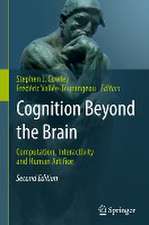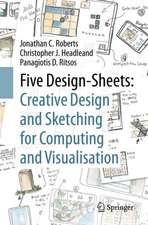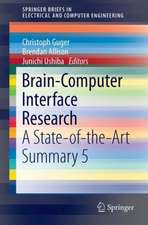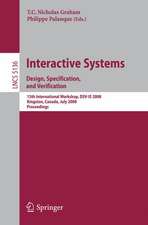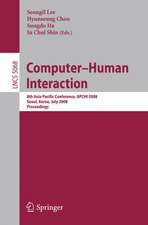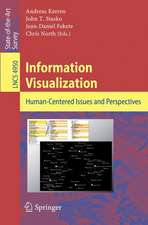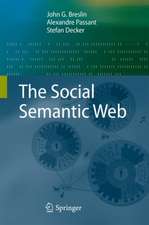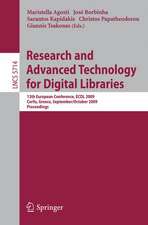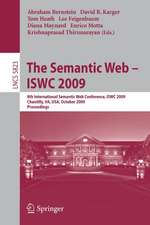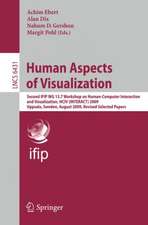Advances in Research on Networked Learning: Computer-Supported Collaborative Learning Series, cartea 4
Editat de Peter M. Goodyear, Sheena Banks, Vivien Hodgson, David McConnellen Limba Engleză Hardback – 13 aug 2004
This volume brings together some of the best research in the field, and uses it to signpost some directions for future work. The papers in this collection represent a major contribution to our collective sense of recent progress in research on networked learning. In addition, they serve to highlight some of the largest or most important gaps in our understanding of students’ perspectives on networked learning, patterns of interaction and online discourse, and the role of contextual factors. The range of topics and methods addressed in these papers attests to the vitality of this important field of work. More significant yet is the complex understanding of the field that they combine to create. In combination, they help explain some of the key relationships between teachers’ and learners’ intentions and experiences, the affordances of text-based communications technologies and processes of informed and intelligent educational change.
| Toate formatele și edițiile | Preț | Express |
|---|---|---|
| Paperback (1) | 638.57 lei 6-8 săpt. | |
| SPRINGER NETHERLANDS – 29 ian 2011 | 638.57 lei 6-8 săpt. | |
| Hardback (1) | 645.28 lei 6-8 săpt. | |
| SPRINGER NETHERLANDS – 13 aug 2004 | 645.28 lei 6-8 săpt. |
Din seria Computer-Supported Collaborative Learning Series
- 15%
 Preț: 659.53 lei
Preț: 659.53 lei - 15%
 Preț: 648.42 lei
Preț: 648.42 lei -
 Preț: 387.38 lei
Preț: 387.38 lei - 18%
 Preț: 1832.53 lei
Preț: 1832.53 lei - 18%
 Preț: 951.29 lei
Preț: 951.29 lei - 15%
 Preț: 642.83 lei
Preț: 642.83 lei - 18%
 Preț: 1135.35 lei
Preț: 1135.35 lei - 18%
 Preț: 949.55 lei
Preț: 949.55 lei - 18%
 Preț: 1021.68 lei
Preț: 1021.68 lei - 18%
 Preț: 1398.94 lei
Preț: 1398.94 lei - 18%
 Preț: 1241.25 lei
Preț: 1241.25 lei - 15%
 Preț: 639.73 lei
Preț: 639.73 lei - 18%
 Preț: 953.20 lei
Preț: 953.20 lei - 18%
 Preț: 955.25 lei
Preț: 955.25 lei - 18%
 Preț: 1116.09 lei
Preț: 1116.09 lei - 15%
 Preț: 646.11 lei
Preț: 646.11 lei - 15%
 Preț: 641.03 lei
Preț: 641.03 lei
Preț: 645.28 lei
Preț vechi: 759.15 lei
-15% Nou
Puncte Express: 968
Preț estimativ în valută:
123.47€ • 128.93$ • 101.96£
123.47€ • 128.93$ • 101.96£
Carte tipărită la comandă
Livrare economică 15-29 aprilie
Preluare comenzi: 021 569.72.76
Specificații
ISBN-13: 9781402078415
ISBN-10: 1402078412
Pagini: 256
Ilustrații: VIII, 248 p.
Dimensiuni: 155 x 235 x 19 mm
Greutate: 0.55 kg
Ediția:2004
Editura: SPRINGER NETHERLANDS
Colecția Springer
Seria Computer-Supported Collaborative Learning Series
Locul publicării:Dordrecht, Netherlands
ISBN-10: 1402078412
Pagini: 256
Ilustrații: VIII, 248 p.
Dimensiuni: 155 x 235 x 19 mm
Greutate: 0.55 kg
Ediția:2004
Editura: SPRINGER NETHERLANDS
Colecția Springer
Seria Computer-Supported Collaborative Learning Series
Locul publicării:Dordrecht, Netherlands
Public țintă
ResearchCuprins
Research on networked learning: An overview.- Complexity, theory and praxis: Researching collaborative learning and tutoring processes in a networked learning community.- A methodological framework for practice-based research in networked learning.- Facilitating debate in networked learning: Reflecting on online synchronous discussion in higher education.- Undergraduate students’ experiences of networked learning in UK higher education: A survey-based study.- Stimulating professional development through CMC — A case study of networked learning and initial teacher education.- Opening dimensions of variation: An empirical study of learning in a Web-based discussion.- Factors influencing students’ orientation to collaboration in networked learning.- A personal inquiry into an experience of adult learning online.- Teaching using the Web: Conceptions and approaches from a phenomenographic perspective.
Textul de pe ultima copertă
Networked learning is learning in which information and communications technology (ICT) is used to promote connections: between one learner and other learners; between learners and tutors; between a learning community and its learning resources. Networked learning is an area which has great practical and theoretical importance. It is a rapidly growing area of educational practice, particularly in higher education and the corporate sector.
This volume brings together some of the best research in the field, and uses it to signpost some directions for future work. The papers in this collection represent a major contribution to our collective sense of recent progress in research on networked learning. In addition, they serve to highlight some of the largest or most important gaps in our understanding of students' perspectives on networked learning, patterns of interaction and online discourse, and the role of contextual factors. The range of topics and methods addressed in these papers attests to the vitality of this important field of work. More significant yet is the complex understanding of the field that they combine to create. In combination, they help explain some of the key relationships between teachers' and learners' intentions and experiences, the affordances of text-based communications technologies and processes of informed and intelligent educational change.
This volume will prove very valuable to researchers and teachers working in (higher) education and corporate education.
This volume brings together some of the best research in the field, and uses it to signpost some directions for future work. The papers in this collection represent a major contribution to our collective sense of recent progress in research on networked learning. In addition, they serve to highlight some of the largest or most important gaps in our understanding of students' perspectives on networked learning, patterns of interaction and online discourse, and the role of contextual factors. The range of topics and methods addressed in these papers attests to the vitality of this important field of work. More significant yet is the complex understanding of the field that they combine to create. In combination, they help explain some of the key relationships between teachers' and learners' intentions and experiences, the affordances of text-based communications technologies and processes of informed and intelligent educational change.
This volume will prove very valuable to researchers and teachers working in (higher) education and corporate education.
Caracteristici
Networked learning is learning in which information and communications technology (ICT) is used to promote connections: between one learner and other learners; between learners and tutors; between a learning community and its learning resources. Networked learning is an area which has great practical and theoretical importance. It is a rapidly growing area of educational practice, particularly in higher education and the corporate sector This volume brings together some of the best research in the field, and uses it to signpost some directions for future work. The papers in this collection represent a major contribution to our collective sense of recent progress in research on networked learning. In addition, they serve to highlight some of the largest or most important gaps in our understanding of students’ perspectives on networked learning, patterns of interaction and online discourse, and the role of contextual factors. The range of topics and methods addressed in these papers attests to the vitality of this important field of work. More significant yet is the complex understanding of the field that they combine to create. In combination, they help explain some of the key relationships between teachers’ and learners’ intentions and experiences, the affordances of text-based communications technologies and processes of informed and intelligent educational change
